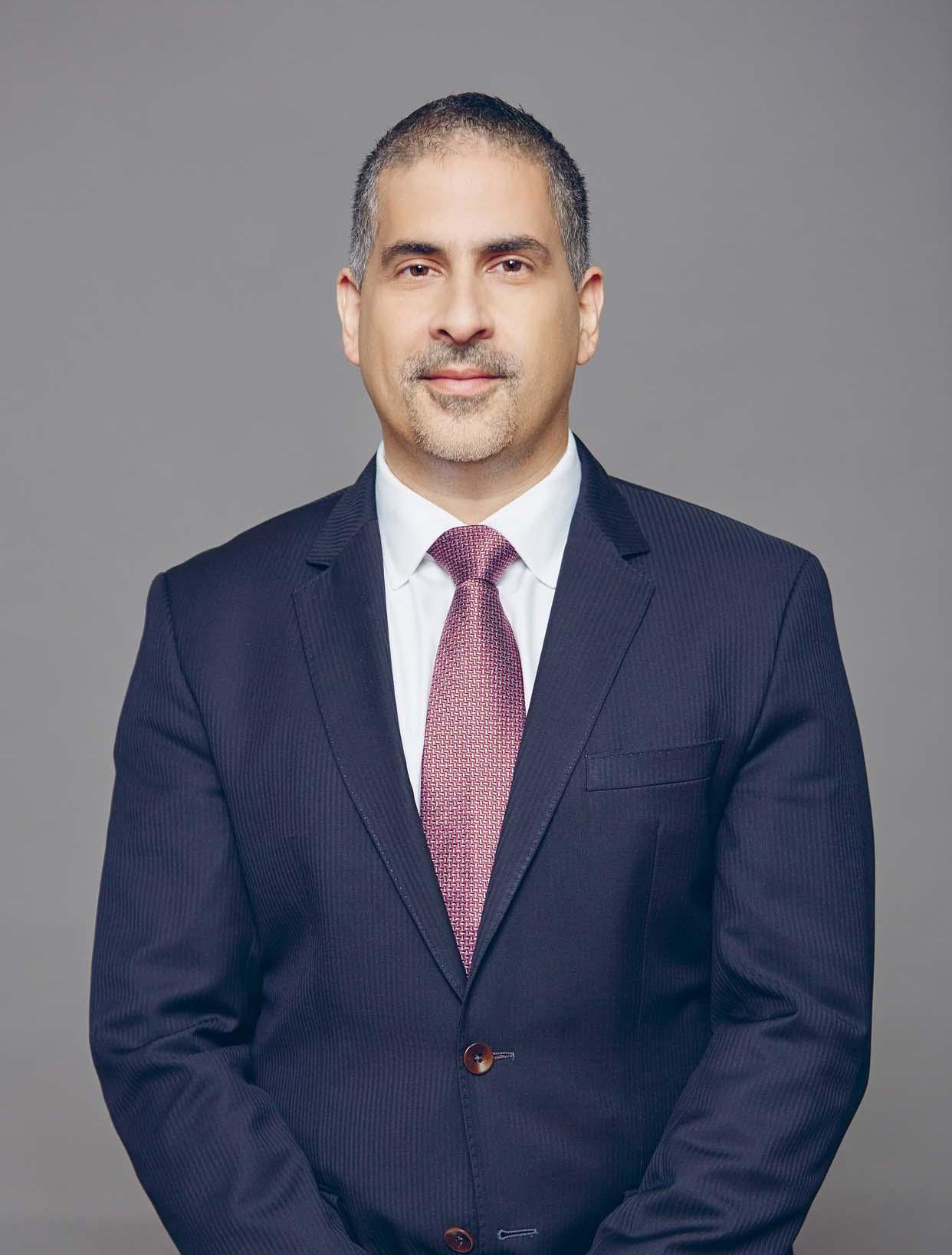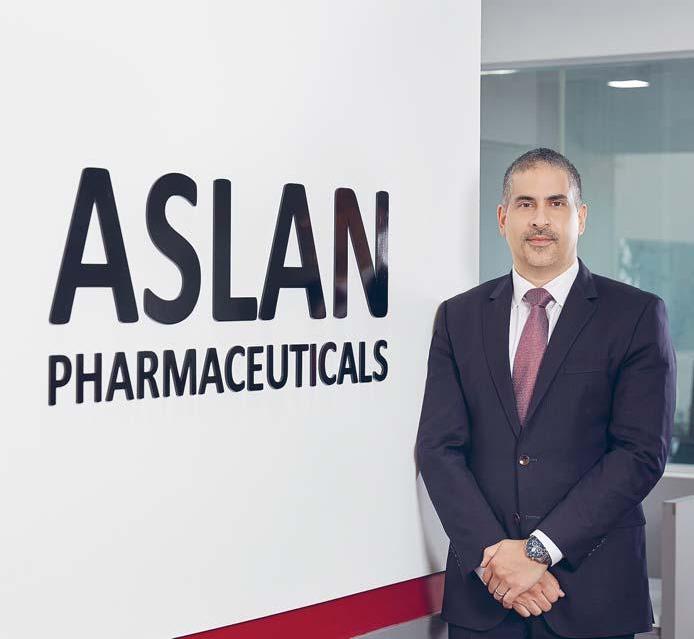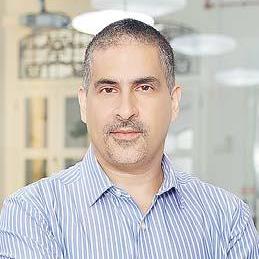
5 minute read
CARL FIRTH SIMON BARKER, SUSAN BECK, FINN GAVIN, PHILIPPA SANDERS
IN CONVERSATION CARL FIRTH
WITH SIMON BARKER, SUSAN BECK, FINN GAVIN (09-20), PHILIPPA SANDERS (15-20)
Advertisement
It is 31 years since I last spoke to Carl Firth (84-91), then an English student of the new GCSEs in my class of 5B in the Plender Library. It was an immense joy to bring the five of us together, in a Zoom meeting with him in Singapore. His career trajectory has been phenomenal, and phenomenally varied, and it was therefore also a delight to bring two of our top Upper Sixth scientists (as Carl was when he left the RGS in 1991) into this conversation.

We began with a word association test. What first comes to mind when you think of Newcastle Royal Grammar School?
Not surprisingly, our iconic space: the school hall. But other reflections emerged during our discussion: ‘When I started out at the RGS at the age of 11, I was literally coasting. I felt: I don’t have to work this hard. I remember one day thinking: what if I actually tried? English was one of the first areas I tried. I remember the encouragement I got from my English teachers, like Jeremy Thomas (77-06) [former Head of English], who taught me in the first year: now that I was actually trying, I was getting some really positive support and energy. And from that point onwards I just carried on trying’. HalfIndian, in his previous school he was labelled the ‘Paki in the school’. The racial bullying stopped on joining RGS.
Looking back on formative school days, and the agonising decisions generations before and since have to make: ‘I remember when I was taking a lot of the choices I did, and maybe the first one was when you were at RGS and they start talking to you about what GCSEs and A Levels you are going to take: this feels like this really is going to dictate the rest of your life. I look back on it and I feel—it really didn’t. It really didn’t. You can make these switches and turns as and when you want to. Not always easy. I’m a big believer that these early steps don’t necessarily dictate your future’.
His own life experience is a magnificent testimony to that. From RGS he went on to achieve a first class degree in Natural Science (Molecular Biology) from Trinity College, Cambridge. The obvious next step was a PhD but ‘I realised at the last minute I hated working in a lab, I hated following recipes. I am a pretty lousy cook and following a lab protocol is pretty much like following a recipe’. So a year in management consultancy with Price Waterhouse followed, half-way through which ‘I really started to miss the science’. So it was back to Trinity to achieve his PhD, during which time he also realised ‘I am not an academic’. That triggered the transition into the pharmaceutical industry.
Asked whether he considered himself a research scientist, a businessman, a healthcare professional— it is clearly a wholly artificial distinction, going back to his remarks about choices at school. A powerful insight into his motivation is provided in his own eloquent words: there is a ‘broader perspective that you
I realised at the last minute I hated working in a lab, I hated following recipes. I am a pretty lousy cook and following a lab protocol is pretty much like following a recipe.”
get working in a company: I also see the business of medicine. I was always passionate about what can we do to help people, and doctors also have that same drive on how they can help patients. But it was also a driver: how do we understand the whole picture? It’s not just about discovering a really good drug that can cure a disease. But how can we effectively get that to a patient? How can we help a doctor understand when to use a drug and the benefits it provides and how can we ensure that the systems can actually pay for the drug and afford to provide the right medical attention to that individual. And that’s a much more holistic picture than you will often get working at the coalface. So that industry view I really enjoy. It gives you questions that are just so emotive’.
That career path took him to AstraZeneca in the UK, China and Singapore (‘Asia has just grown up around me over the last 16/17 years’). And from big pharma (‘The one interesting thing about big pharma is they do tend to silo you into various functions: research; this is clinical development; this is commercial sales marketing. Very few people jump between them. I had a hell of a job doing it’) to founding his own ASLAN Pharmaceuticals in 2010, of which he is CEO (‘we’re working on drugs for cancer, we’re working on drugs for atopic dermatitis—a disease which affects 3-4% of the population. Those are the things that really excite me’). Lockdown (‘normally I travel like crazy, 250,000 air miles in a year’) has given the opportunity to consider what he calls his ‘next gig’. ‘I continue to chase a dream’: the intersection of AI machine learning and health care, transforming the way we discover and develop drugs. Carl married his Taiwanese husband back in the UK in 2013: they have two young boys, ages three and one, so when asked what he did to unwind it provoked some hilarious laughter! Though he did confess to being a big fan of electronic dance music and his disappointment at the Tomorrowland festival cancellation due to coronavirus. And he has gone back to rediscovering some of the fantasy/horror fiction of his school days (his former English teacher is saying nothing!). And the end went back to our beginning: ‘I have to say the impact that teachers have on you during your upbringing at school—I don’t know if teachers realise just how much they are—and I have to say that when I was 18/19 I didn’t appreciate it. It was only much later when I look back and I remembered all of my teachers so vividly and what they contributed, and my interactions with them. I am very grateful for that’.

Asked what motivates him: ‘How can I use what I have been given, this unique set of skills—there is some stuff that I am really good at, some stuff I am pretty bad at—how can I use that combination of skills to contribute something to the world I am living in?’ Carl Firth is clearly being an enormously inspirational benefit to the world. Driven, holistic, emotive, chasing a dream: the four of us at the RGS felt it an enormous privilege to share in this conversation.












